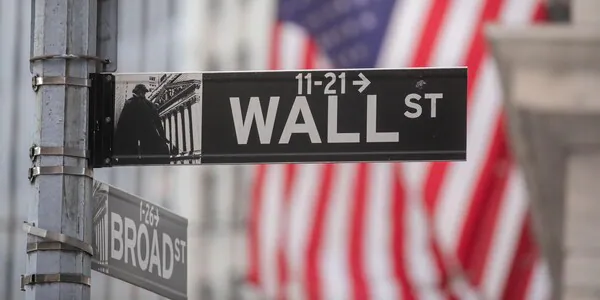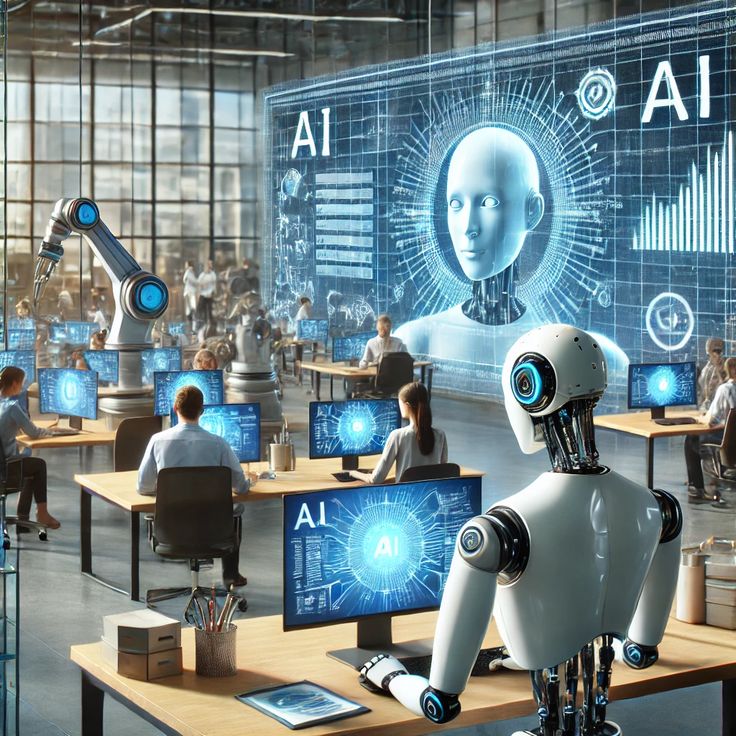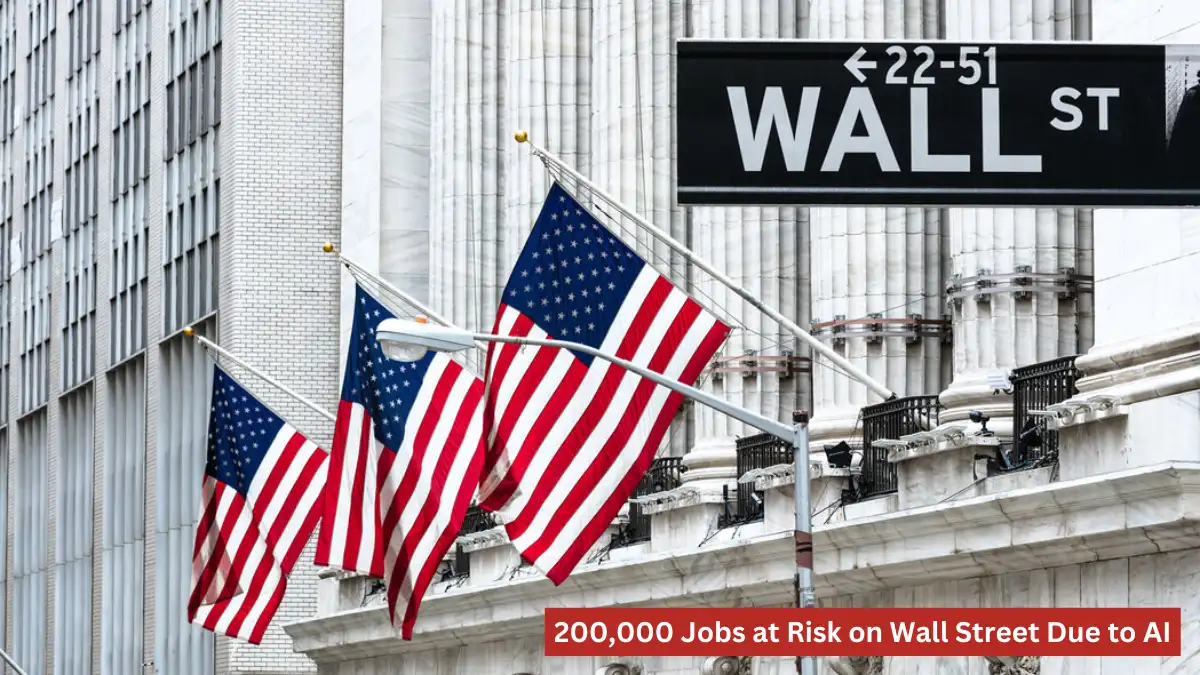you’re working at a bustling Wall Street bank, and suddenly, your role seems less important. While you’re busy with daily tasks, a quiet revolution is underway.
It’s not in the form of a new financial crisis but through a faster, smarter, and more efficient force—Artificial Intelligence (AI).
Global banks are now preparing to let go of around 200,000 workers in the next few years.
That’s 3% of their workforce. A Bloomberg Intelligence survey reveals that AI is set to automate a significant portion of the work, especially in areas like back offices, middle offices, and operations. And this shift isn’t just about saving money—it’s about skyrocketing productivity.
As more tasks are taken over by AI, banks may see a rise in profits. It’s a paradox. Fewer workers, but greater output. How can this be? Well, AI is more than just a buzzword.
It’s a productivity powerhouse capable of performing tasks faster, without breaks, and with few mistakes. But in this world of innovation, people are being left behind.
How AI Will Reshape Wall Street Jobs?
Over the next three to five years, Wall Street banks will reduce their workforce. It’s not just the repetitive, mundane tasks that AI is taking over; it’s the whole spectrum of roles in support services.
Tasks like data entry, transaction processing, and customer inquiries, all of which require accuracy and speed, are now falling to algorithms.
While this may sound like a dystopian future, the truth is, it’s already happening. AI technology is evolving at an exponential rate, with systems capable of learning and improving over time.
From managing financial portfolios to executing complex trades, AI can now outperform human workers in certain areas.
Think of it as a giant wave moving across the landscape of finance. It’s reshaping how everything is done. Back-office employees, once the lifeblood of daily operations, are feeling the brunt of this shift.
The same goes for middle-office roles focused on risk management and compliance.

Banks’ Shifting Focus: Bigger Profits, Fewer Jobs
It’s not all doom and gloom, though. Banks are optimistic. With AI replacing routine tasks, they can free up valuable resources and focus on high-value activities, such as strategic decision-making, innovation, and customer engagement.
AI promises a future where banking is more efficient, and profits soar. Think about the possibilities: faster transactions, reduced errors, lower costs, and more satisfied customers.
For investors and executives, this is an exciting prospect. For the employees whose jobs are at risk, it’s a wake-up call.
Many are already experiencing the consequences of AI integration—positions once thought safe are now under threat.
Some employees are being asked to adapt, learn new skills, and evolve with technology. But for others, the writing is on the wall.
What Happens to the Workforce Left Behind?
The question remains: what happens to the workers displaced by AI? As banks push toward greater efficiency, the human element becomes less central.
Workers who once had secure roles now face an uncertain future. What does this mean for the average worker?
AI might be improving the bottom line, but it’s also creating a divide. While those who embrace AI will thrive in the new ecosystem, those unwilling or unable to adapt may find themselves out of a job.
In fact, this could lead to a massive shift in the job market, where the divide between tech-savvy workers and traditional roles becomes even more pronounced.
There’s also the impact on salaries. As AI automates low-level tasks, the demand for highly skilled workers—those who can manage, build, and optimize AI systems—will grow.
The question is whether those displaced by AI will be able to transition into these high-skill jobs. Will they have the tools and training they need to succeed, or will they be left behind as the tech revolution sweeps across Wall Street?

Final Thoughts
This change on Wall Street is just the beginning. AI has the power to disrupt many industries, from finance to healthcare to retail.
We’ve already seen this transformation in other sectors, with automation taking over everything from assembly lines to customer service.
But in finance, the stakes are much higher. With trillions of dollars at play, every change has a ripple effect.
So, what’s next? For workers in the finance industry, it’s clear: they’ll need to be adaptable. The future of work is shifting beneath our feet, and it’s up to us to keep up.
Those who can harness the power of AI will find themselves in a better position to succeed, but for those who resist change, the future may look bleak.
Clark is a 26-year-old expert working for consumer protection, Clark has dedicated years to identifying and exposing fraudulent schemes. He is working with NGOs to help people who are victims of scams. In his free time, Todd plays football or goes to a bar.







